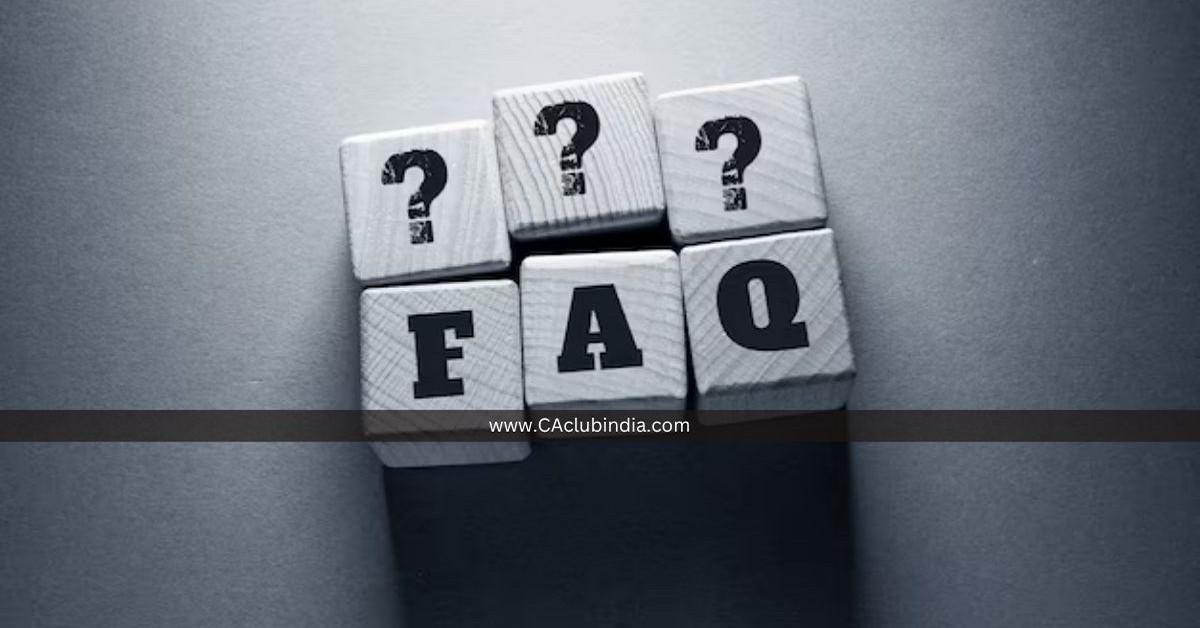The Institute of Chartered Accountants of India (ICAI) has issued FAQs on Guidance Note for Financial Statements of Non-Corporate Entities, effective for accounting periods beginning on or after April 1, 2024. Developed jointly by the Accounting Standards Board (ASB) and Auditing and Assurance Standards Board (AASB), this authoritative document supersedes the 2022 Technical Guide and is expected to bring uniformity, transparency, and enhanced quality to the financial statements prepared by non-corporate entities across India.

Who Is Covered?
The Guidance Note applies to a wide array of non-corporate business and professional entities, including:
- Sole proprietorships
- Hindu Undivided Families (HUFs)
- Partnership firms (registered and unregistered)
- Associations of persons, societies, trusts, and resident welfare associations
- Statutory corporations and autonomous bodies not governed by the Companies Act or LLP Act
However, entities such as not-for-profits, political parties, and educational institutions that are already governed by specific ICAI guidance or statutory financial reporting requirements are exempt.
What Does the Guidance Note Provide?
The Guidance Note prescribes standardised formats for:
- Balance Sheets
- Statements of Profit and Loss
- Notes to Accounts
It establishes a minimum disclosure requirement while allowing for the inclusion or substitution of line items relevant to specific industries, ensuring both standardisation and flexibility.
In line with ICAI's engagement standards, the document emphasizes the auditor's responsibility in reporting non-compliance by clients and provides clarity on whether such non-adherence necessitates a modified audit opinion.
Important Clarifications
- Nil value line items in both current and prior years may be omitted.
- Comparative data for the preceding reporting period must be provided unless it is the entity's first financial statement.
- Entities must disclose if they deviate from the prescribed presentation and should document alternate procedures adopted.
Revised Classification of Non-Company Entities
ICAI has also released revised criteria for classifying non-company entities, effective April 1, 2024:
- Micro, Small, and Medium-Sized Entities (MSMEs) - with turnover up to Rs 50 crore and borrowings not exceeding Rs 50 crore.
- Large Entities - entities not qualifying as MSMEs.
Click here to access the revised criteria
Large entities must comply fully with all Accounting Standards (AS), while MSMEs are granted certain exemptions and relaxations, particularly from:
- AS 3 (Cash Flow Statements)
- AS 17 (Segment Reporting)
- AS 20 (Earnings per Share)
- AS 24 (Discontinuing Operations)
- Certain disclosures under AS 15, AS 19, AS 28, etc.
Transitional Provisions and Disclosure Norms
MSMEs availing exemptions must disclose their classification and any changes in eligibility, especially when moving in or out of the MSME category. Transitional provisions also dictate how previously accrued deferred tax liabilities or assets are to be handled.
This revised guidance marks a significant stride towards greater standardisation and quality in financial reporting among India's vast segment of non-corporate entities, which form a critical part of the country's economic fabric.
Official copy of the notification has also been attached









 CAclubindia
CAclubindia

